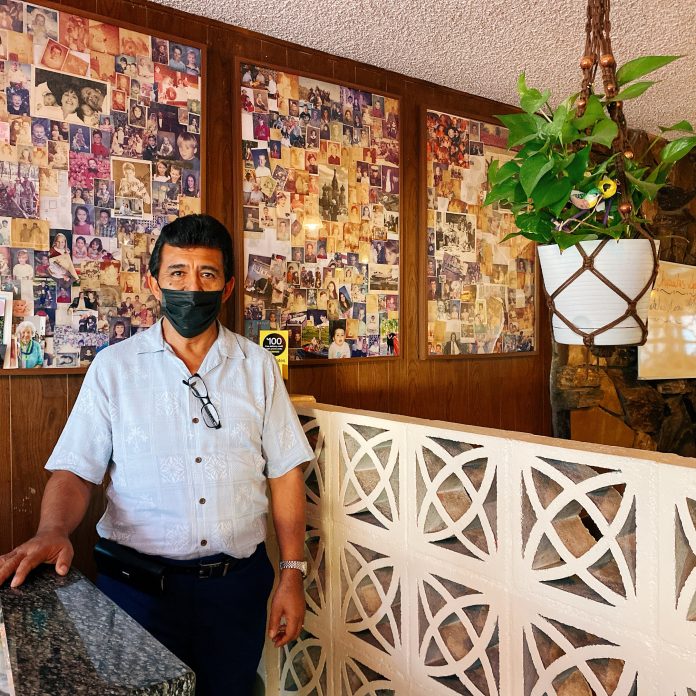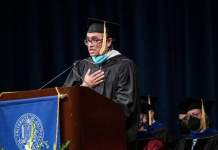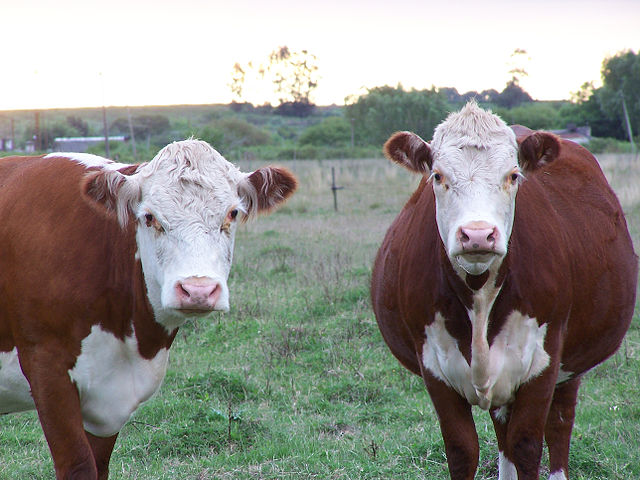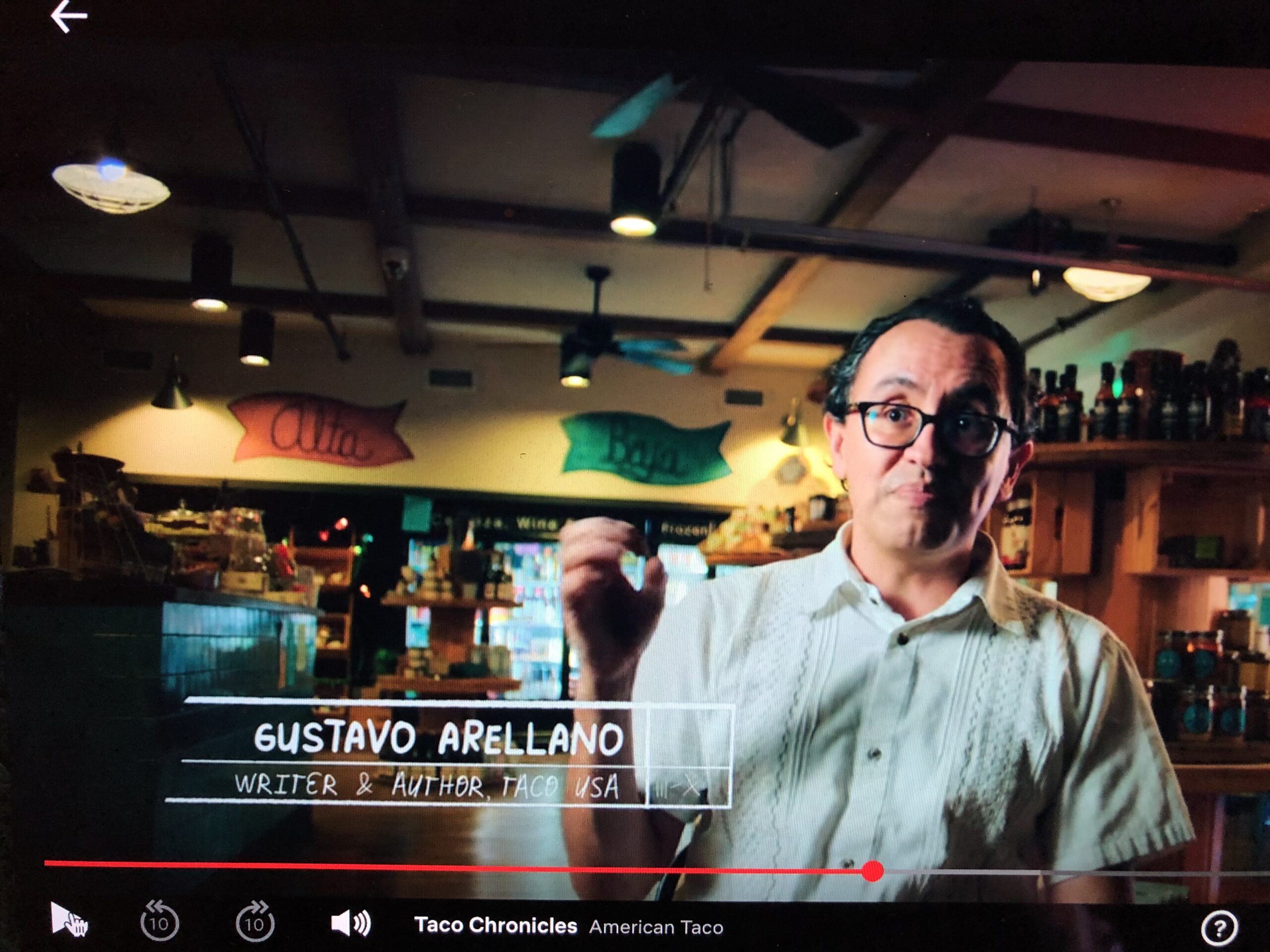This article was generously sponsored by the Aztlan Journalism Fund — gracias, anonymous donor!
For 25 years, a line of cars greeted Sammy Montoya nearly every morning as he put out tables for lunchtime at his La Chiquita in SanTana. The 70-year-old restaurant, in the city’s historic Logan barrio, has a devoted fan base who swear by its Cal-Mex classics like crispy ground-beef tacos and wet burritos. Customers would cram into the diner’s old dining room, hang out at wood laminate tables and brown vinyl chairs, and pick at their combo plates for hours.
Ever since last March, though, the restaurant has sat empty. But customers continue to come.
Louie Holguin has patronized La Chiquita for enchiladas and frijoles with no queso since it opened back in 1950. “They get their chiles from New Mexico to make the enchilada sauce and that’s where it’s at,” said the 81-year-old, grabbing a to-go bag from the counter on a recent weekday. He has tried to come in more frequently with everything going on. “We have to take care of each other.”
“The flavors and recipes don’t change,” says Mari Boyes, a 77-year-old retired Santa Ana special ed teacher who has visited La Chiquita for 50 years. “We’ve been bringing my son here since he was in a high chair, he’s 46 years old. And now, he brings my grandchildren when they’re in town.”
Unlike the constant turmoil that affects longstanding businesses in downtown SanTana, Logan has largely remained the same thanks to people like the late anti-gentrification warrior Josefina “Chepa” Andrade, Montoya and other local activists who’ve worked to preserve the neighborhood and its Latino-owned businesses.
And the neighborhood’s shining star is La Chiquita. It should survive coronavirus — but its future nevertheless remains uncertain.
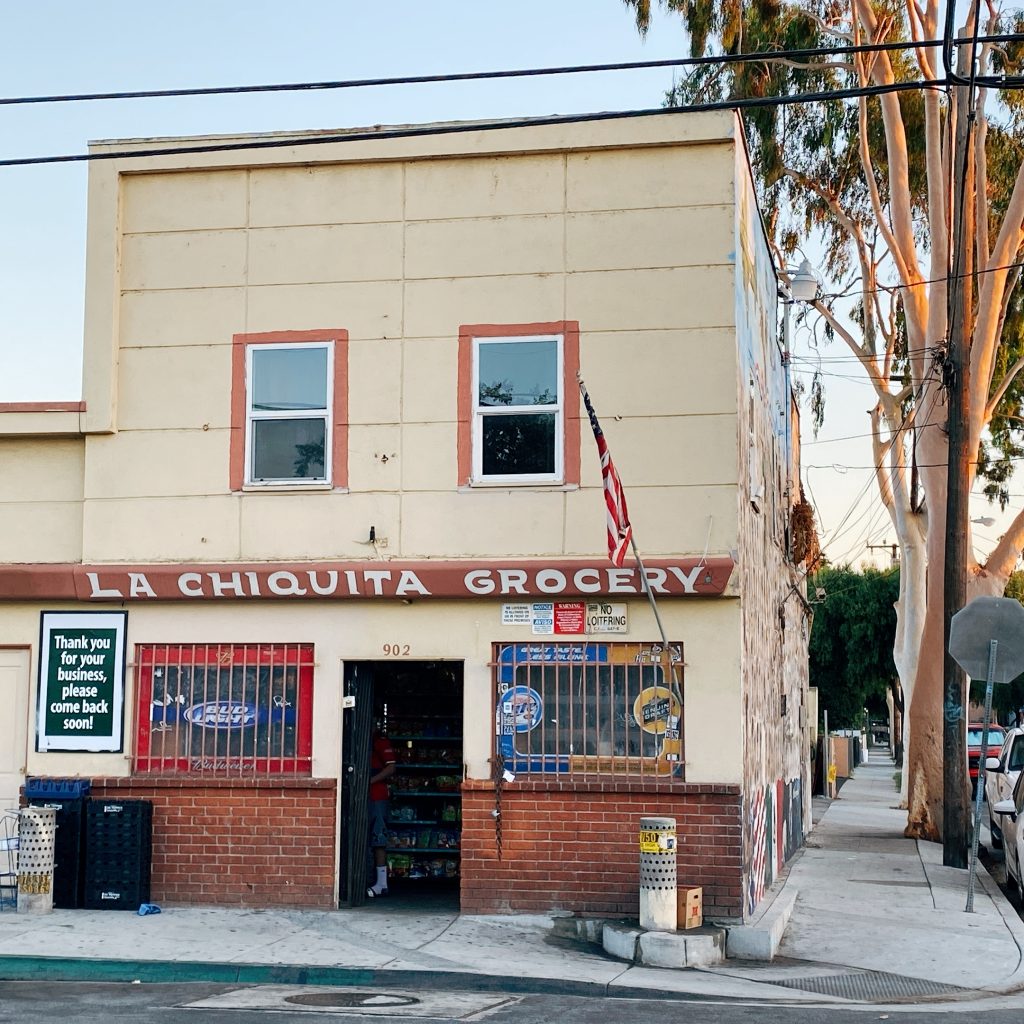
It started as a market in the early 1900s, when Logan was one of the few neighborhoods in Orange County where Mexicans could legally buy a home. The Loya family (of Fred Loya Insurance fame) ran the mercadito, and also opened an adjoining tortilla factory. The two together proved so popular that one Joe Salcedo opened a restaurant by the same name, and eventually bought out the Loyas.
The space has remained more or less the same through the decades. In a cream-stuccoed building with brown lava rock trim and an interior white breeze block wall, La Chiquita sits on a corner lot that includes the restaurant itself, La Chiquita Grocery, an apartment above it, an attached building used for storage, and a yellow bungalow house next to the restaurant’s parking lot. A mural dedicated to Logan’s Mexican-American war veterans decorates the outside of the market and draws admirers from across Southern California.
La Chiquita never became famous outside of Orange County, where it became an institution. Prosecutors and judges haunted the spot, and it was a favorite of editors and writers with the Orange County Register, whose offices was less than a mile away. But as his health declined, and Salcedo’s children decided not to take up the family business, the entire property was in danger of disappearing.
That’s when Montoya came in.
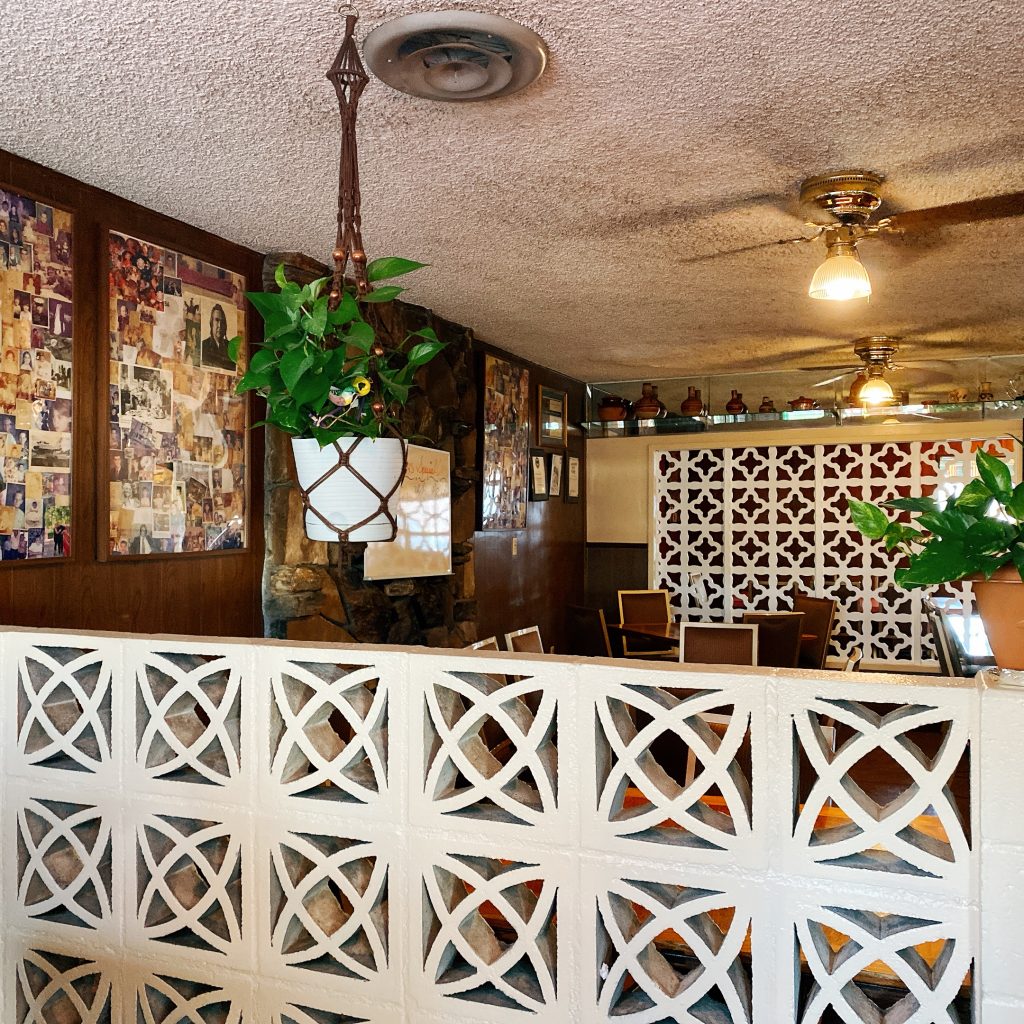
The 56-year-old migrated to the United States from Zacatecas in 1982 as a 15-year-old along with his five brothers. “I knew if I stayed in Mexico, I’d be the same person, working at the rancho with nothing,” Montoya said. He settled in Laguna Beach, and got a job as a dishwasher at the now-closed White House before moving up to bartender. When he wasn’t working, Montoya took English as a Second Language classes at Laguna Hills High School.
He credits White House owner George Catsouras for mentoring him. “He opened the doors for me when I was nobody and helped me become a resident,” Montoya said.
In 1994, White House and La Chiquita regular Don Brown told Montoya about the troubles affecting La Chiquita. Brown and other customers didn’t want it to close, but also had no experience running a restaurant. So they asked Montoya if he wanted to join them in buying it.
He agreed, but recalled being scared when he told Catsouras.
“I asked if I could leave the door open just in case it didn’t work out,” Montoya said. “And he told me, ‘The door will always be open, but you’ll be good and you’ll never come back here.’ Thank God he was right.”
He bought out all of his fellow La Chiquita investors within a decade.
The father of two attributes his success to providing the same level of service, nostalgia and flavorful food that Salcedo offered. “I own a piece of history,” he said, “and if this has worked for 70 years, why change it?”
But COVID forced him to. He shut down for three months and now relies almost exclusively on takeout, which he always offered but never depended on. But his business hasn’t suffered as much as fellow restaurateurs — not just because he owns his own building, but because La Chiquita’s longtimers have ensured his survival.
“A lot of our customers call and say, ‘Sammy, if you need anything just let us know,”’ he said.
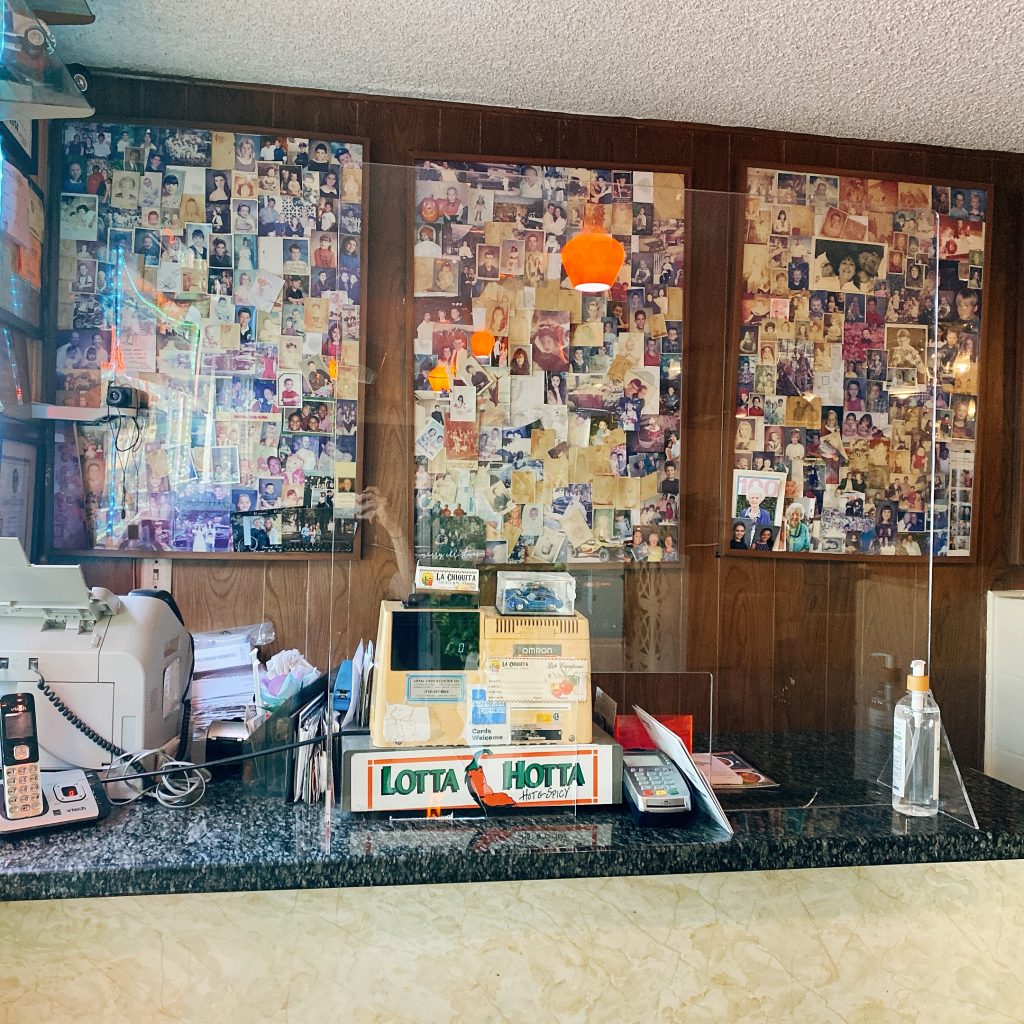
It’s this kind of support from his community and customers that Montoya says makes the thought of retirement difficult. The SanTana resident wants to quit when he turns 62 and move to Puerto Nuevo in Baja California, but…
“It’s something I constantly think about because I don’t think my kids will want to take over the business,” he says. “And if they don’t take over, what I’ll probably do is sell the business and keep the property. But whoever buys the business needs to be somebody like me, and respect what I’ve done –– like I did with Joe.”
On the evening before the most recent statewide restaurant dining shutdown, Montoya stood at the doorway of his restaurant handing out takeout orders and greeting each person that walked up like if they were a family member.
“You know, I’m blessed,” Montoya said, looking up at La Chiquita’s vintage arrow bulb sign as it flickered and pointed the way into the restaurant. “Every day, I thank God for what I have.”

